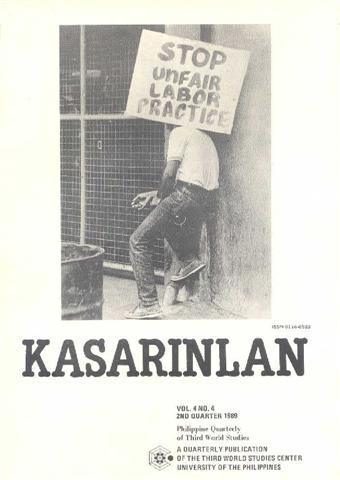Democracy, Socialism, and Post Revolutionary States: Problems in Theory and Reality
Abstract
The paper is a discussion on the difficulties involved in the theoretical specification of socialism, what with contrasting tendencies of idealizing it or apologizing for so-called actually existing socialism. An examination of classical Marxism's discourse on the central problem of human alienation and bondage and how it could be superseded by the socialist project through an eventual unity of state and civil society follows with serious questions being raised whether civil society can indeed be the real political state (with its attendant ramifications) or whether the political state continues to exist during the socialist transition to mediate between factions of civil society, whether organized political parties or movements or as popular organizations. What is in question here is the claim that the state as such will eventually disappear along with politics (understood as the governance of men) to be replaced simply by the "administration of things" in communism. Alongside the idea of the eventual withering away of the state is that of the strategic abolition of the social division of labor in communism which is again examined critically in the light of recent assertions that state and social division of labor, especially between manual and mental labor, nurture each other, that the full emancipation of labor from the prevailing social division of labor not only requires a long period of cultural and intellectual development, which in turn must be managed by a body such as the state or any other revolutionary change agent, such as the Party or any other entity; and that the state has non-suppressive, socially necessary functions which could and should be exercised in the period of post-revolutionary socialist construction. The last theoretical section discusses the problems of democratization and citizens' participation in socialist politics focusing attention on the familiar "free rider" problem endemic in all collective endeavors and how it could be resolved.
Published
2008-07-02
Issue
Section
Features
By submitting a manuscript, the authors agree that the exclusive rights to reproduce and distribute the article have been given to the Third World Studies Center.



